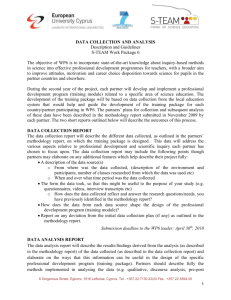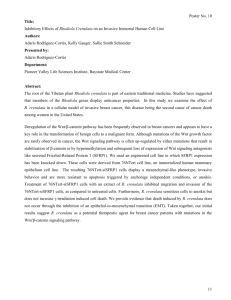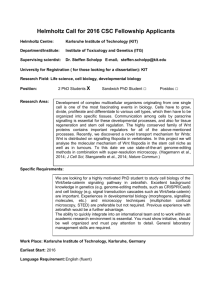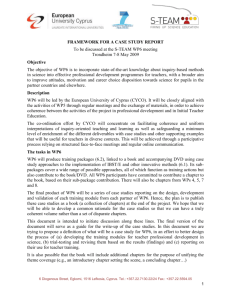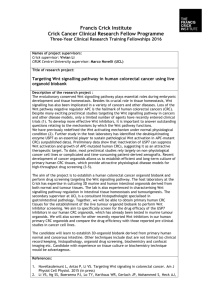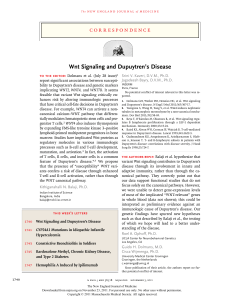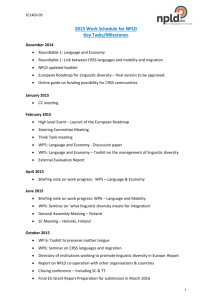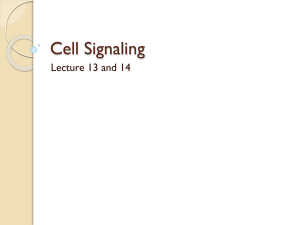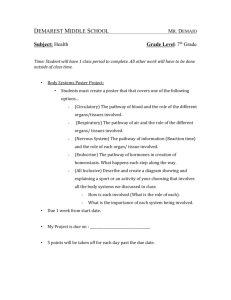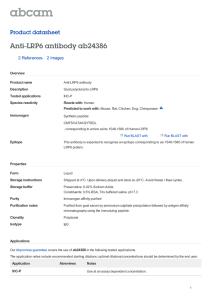Elucidating the Role of Wnt Signaling in Breast
advertisement
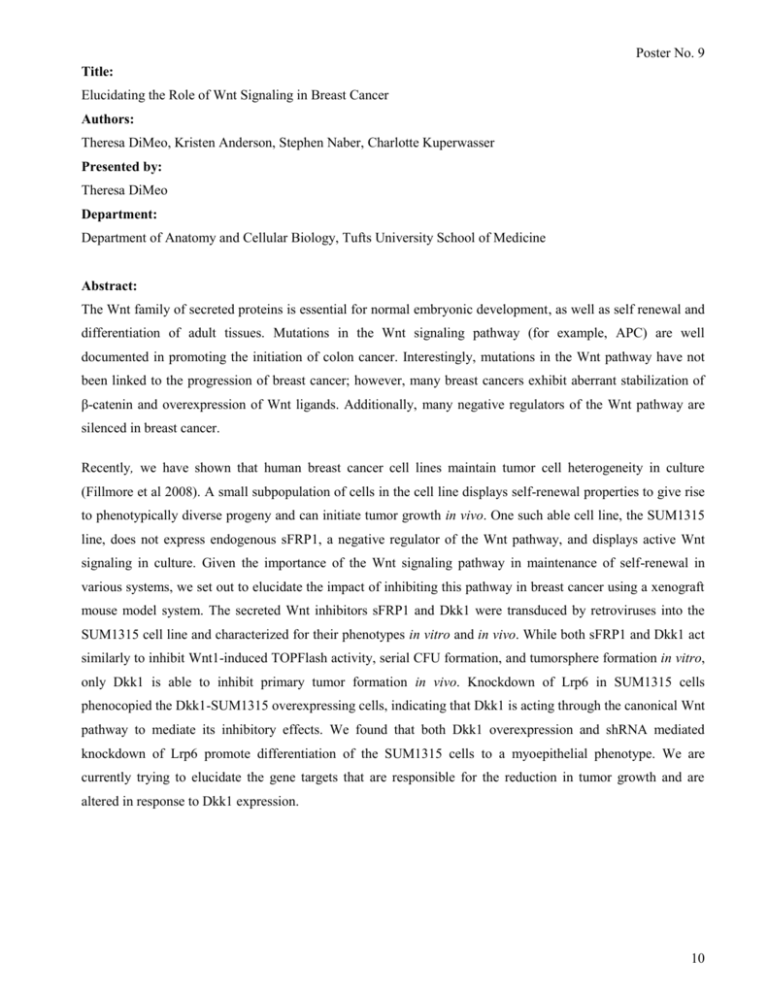
Poster No. 9 Title: Elucidating the Role of Wnt Signaling in Breast Cancer Authors: Theresa DiMeo, Kristen Anderson, Stephen Naber, Charlotte Kuperwasser Presented by: Theresa DiMeo Department: Department of Anatomy and Cellular Biology, Tufts University School of Medicine Abstract: The Wnt family of secreted proteins is essential for normal embryonic development, as well as self renewal and differentiation of adult tissues. Mutations in the Wnt signaling pathway (for example, APC) are well documented in promoting the initiation of colon cancer. Interestingly, mutations in the Wnt pathway have not been linked to the progression of breast cancer; however, many breast cancers exhibit aberrant stabilization of β-catenin and overexpression of Wnt ligands. Additionally, many negative regulators of the Wnt pathway are silenced in breast cancer. Recently, we have shown that human breast cancer cell lines maintain tumor cell heterogeneity in culture (Fillmore et al 2008). A small subpopulation of cells in the cell line displays self-renewal properties to give rise to phenotypically diverse progeny and can initiate tumor growth in vivo. One such able cell line, the SUM1315 line, does not express endogenous sFRP1, a negative regulator of the Wnt pathway, and displays active Wnt signaling in culture. Given the importance of the Wnt signaling pathway in maintenance of self-renewal in various systems, we set out to elucidate the impact of inhibiting this pathway in breast cancer using a xenograft mouse model system. The secreted Wnt inhibitors sFRP1 and Dkk1 were transduced by retroviruses into the SUM1315 cell line and characterized for their phenotypes in vitro and in vivo. While both sFRP1 and Dkk1 act similarly to inhibit Wnt1-induced TOPFlash activity, serial CFU formation, and tumorsphere formation in vitro, only Dkk1 is able to inhibit primary tumor formation in vivo. Knockdown of Lrp6 in SUM1315 cells phenocopied the Dkk1-SUM1315 overexpressing cells, indicating that Dkk1 is acting through the canonical Wnt pathway to mediate its inhibitory effects. We found that both Dkk1 overexpression and shRNA mediated knockdown of Lrp6 promote differentiation of the SUM1315 cells to a myoepithelial phenotype. We are currently trying to elucidate the gene targets that are responsible for the reduction in tumor growth and are altered in response to Dkk1 expression. 10
